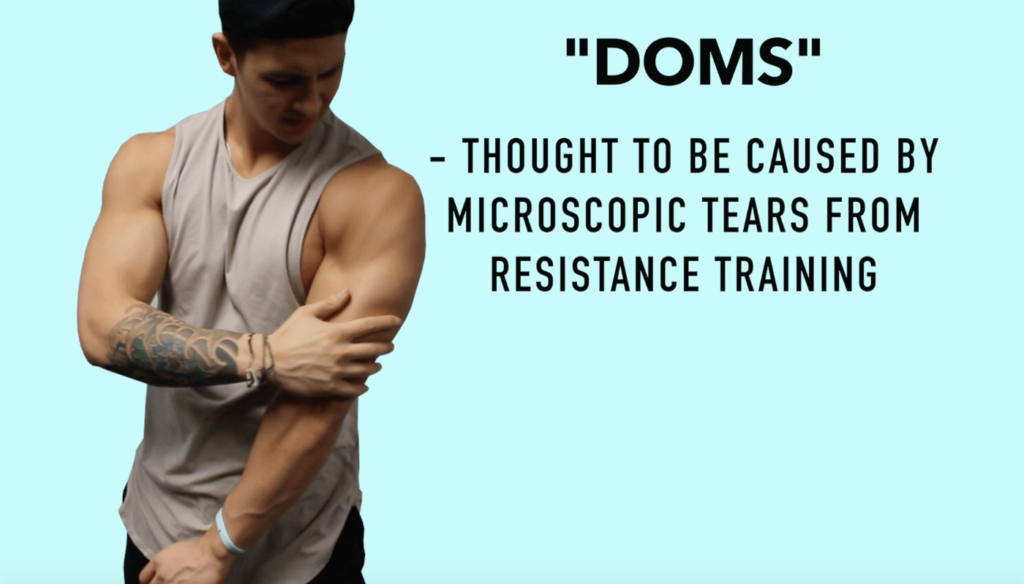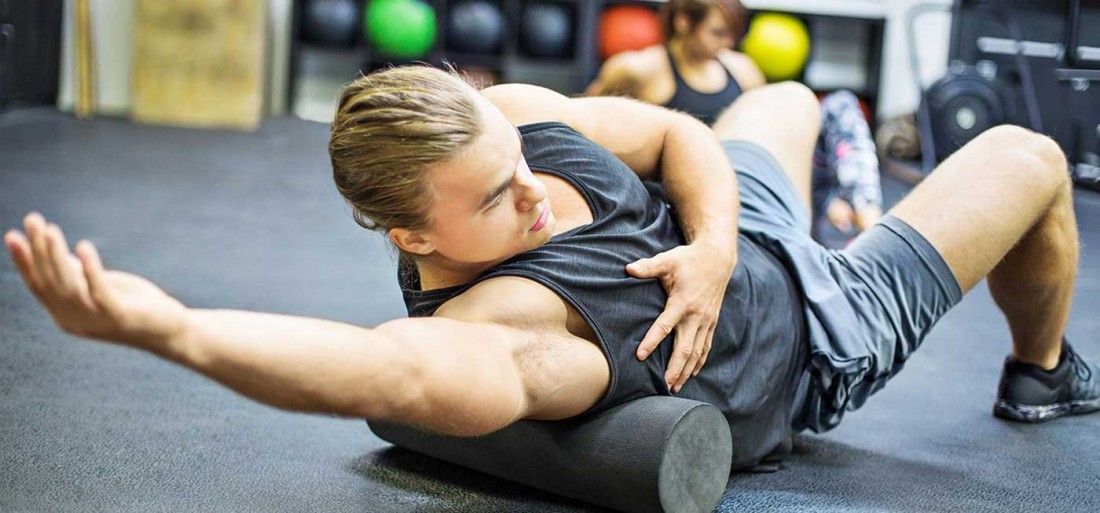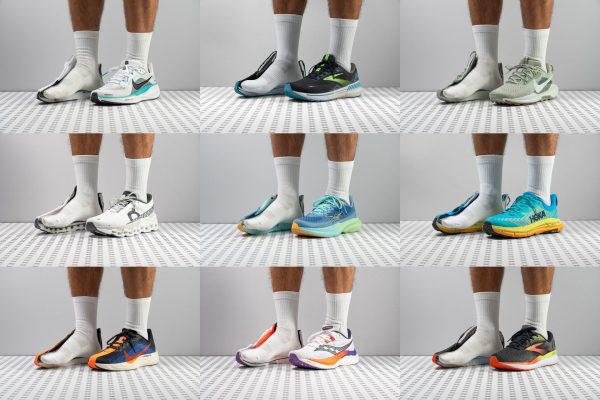1 Dont stop exercising. So to sum up the video in order to minimize muscle soreness and enhance recovery.
 4 Science Backed Tips To Reduce Muscle Soreness And Enhance Muscle Recovery
4 Science Backed Tips To Reduce Muscle Soreness And Enhance Muscle Recovery
How to reduce muscle soreness.

Reduce muscle soreness. 5 Ways to Reduce Muscle Soreness STAT 1. In the same way techniques such as massage and a foam roller can not only help to move inflammatory fluids out of the muscle but also can remove adhesions and sore or tight spots from the worked muscles. 3 Get proper sleep.
A hot bath with Epsom salts is even better because the magnesium in the solution can be absorbed through the skin helping reduce soreness and improve muscle function. One final thing you can do to help prevent muscle soreness is to perform static stretches right after your workout while drinking your PWO shake while the muscles are still warm. Multiple studies show that pre-workout caffeine consumption can reduce subsequent muscle.
Foods that are rich in antioxidants can help reduce inflammation and decrease muscle soreness. I tell my athletes put the same effort into recovery that you do into your training session in order to maximize the benefits prevent injury and recover fa. A quick 5 or 10 minutes will improve blood circulation to sore muscles.
When athletes experience muscle soreness the best strategy is to do a very light and short up. A hot bath is a fantastic way to loosen muscles post-workout. Its important to listen to your body.
Caffeine has pain killing properties which is. Cherry juice pineapple ginger. Research published in the Scandinavian Journal of Medicine and Science in Sports.
Unlike local application of heat eg heat pad sauna bathing hits the whole body warming up muscles and increasing tissue temperature. Stretching to prevent or reduce muscle soreness after exercise. They also help prevent free radical damage to our cells.
When you start a new exercise program or are exercising at a high intensity muscle soreness is to be expected. Water is a necessary component in the process of energy production in the muscles. Ibuprofen has been shown to decrease soreness but not counteract the reduction in muscular performance caused by delayed onset muscle soreness.
Although its not nearly as popular as cold therapy for reducing muscle soreness sauna bathing is gaining attention as an effective tool to promote recovery and relieve exercise-related pain. In order to treat muscle soreness in the right way it is also necessary for you to know the causes of muscle soreness so that will be easier to treat. The heat and buoyancy of water also speeds blood flow which helps you relax and sleep soundly.
Performing a brief cool-down after a workout helps contracting muscles milk out excess soreness-generating fluids. Causes of Muscle Soreness. Below we are going to tell you some common causes of muscle soreness and stretch.
Eating Tart Cherries The science. Foam roll after your workout for 10 minutes or so with a focus on the muscles you worked that day Perform active recovery after your foam rolling as well or the day after your workout again with a focus being on. Other anti-inflammatory foods that have shown promise in treating muscle soreness are.
And in another study from 2014 participants who took ice baths for 10 minutes after exercise reported the lowest levels of pain and muscle soreness when asked to stretch. This can help release lactic acid out of the muscles in addition lengthening the muscle so that blood can flow more freely through the muscle to help begin the repairing process. Exercise increases pain thresholds and pain tolerance.
Counterintuitively continued exercise may temporarily suppress the soreness. Try Ice For areas that you exercised particularly strenuously applying an ice pack for 10 minutes will help reduce inflammation in an overworked muscle. The evidence derived from mainly laboratory-based studies of stretching indicate that muscle stretching does not reduce delayed-onset muscle soreness in young healthy adults.
A long hot shower will also do the trick. According to Carissa Bealert licensed registered dietitian-nutritionist and certified personal trainer A rule of thumb when it comes to antioxidants is to eat the rainbow. Drinking Coffee The science.
Excessive workout in regular basis. Muscle soreness can last up to 72 hours so if you find the feeling of pain in your muscles is lasting a week or more you may have a strain. Exercise and yoga in a wrong way.
Drinking coffee an hour before you train can reduce muscle soreness fatigue and can increase performance. Taking post-workout supplements such as branched-chain amino acids for soreness may help reduce pain after your workout.

